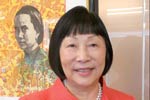UK backs China's market status
Updated: 2011-09-27 22:49
By Zhang Chunyan and Cecily Liu (chinadaily.com.cn)
|
|||||||||
LONDON — China hopes the United Kingdom will push for EU recognition of China's market economy status and expand exports of high-tech products to China, State Councilor Dai Bingguo said on Tuesday.
Dai, who oversees foreign affairs, made the remarks when meeting British Prime Minister David Cameron at 10 Downing Street in London.
According to a Foreign Ministry statement, Dai said that China attaches importance to developing relations with the UK, adding that both sides should work together to push forward bilateral relations.
On the G20 summit which to be held in Cannes, France, in November, Dai said that China will strengthen consultation and cooperation with the UK in the G20 framework.
The relationship between the UK and China has made good progress, with communication and cooperation flourishing in various fields, Cameron said.
Cameron also said that the UK will support EU recognition of China's market economy status at an early date and promote EU-China relations.
The two sides discussed a full range of international and regional issues, including the eurozone debt crisis.
Dialogues like this are important to address the specific needs of both countries, Justin Wintle, British journalist and East Asian political analyst, told China Daily.
"I believe it is important for China to take such opportunities to assure the UK that there is a level playing field for investment in its domestic market. To spread the message about its open market will benefit both China and the UK," said Wintle.
China-UK relations have maintained a sound development momentum in recent years. The two countries have established a comprehensive strategic partnership and sound dialogue and exchange mechanisms.
This dialogue follows the state visit to the UK by Premier Wen Jiabao in June and a visit in September by Vice-Premier Wang Qishan, who co-chaired the Fourth China-UK Economic and Financial Dialogue.
"China and the UK are in a good position to cooperate on alleviating the eurozone debt crisis. Both Britain and China's economies are very integrated with the European economy," said Rana Mitter, a professor at Oxford University.
A quarter of China's foreign reserves are denominated in the euro, which means that China has an economic interest in seeing the European economy prosper, added Mitter, who specializes in the history and politics of modern China.
Michael Cox, professor of International Relations at London School of Economics and Political Science, said: "China and the UK have a common interest in making the eurozone coherent."
The US and EU are China's biggest export markets, and already the Chinese economy's growth is slowing due to reduced demand from the US and the EU, Cox added.
Dai also met British Foreign Secretary William Hague during the third China-UK Strategic Dialogue on Monday.
Developed countries should see the rise of developing nations as an opportunity, and give them support and respect, Dai said at the dialogue.
Miwa Hirono, research fellow of the China Policy Institute at University of Nottingham, noted that since the early 2000s, China has attempted to project its international image as a responsible state, partly to counter the "China threat" theory.
"Such a theory hampers China's aim to secure a peaceful environment conducive to its continuing economic development," said Hirono.
China's strong will to promote such an image in the dialogue was revealed by Dai's commentary on peaceful development, published in the UK's Sunday Telegraph newspaper just ahead of the meeting, Hirono noted.
Dai noted that the Chinese government recently published a white paper on China's strategy of peaceful development. "We hope that the world will welcome China's peaceful development rather than doing anything to obstruct it," Dai said in the article.











